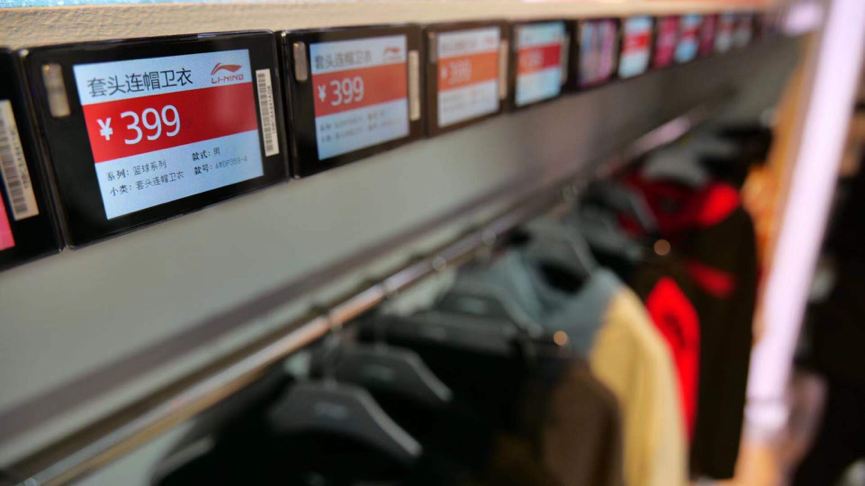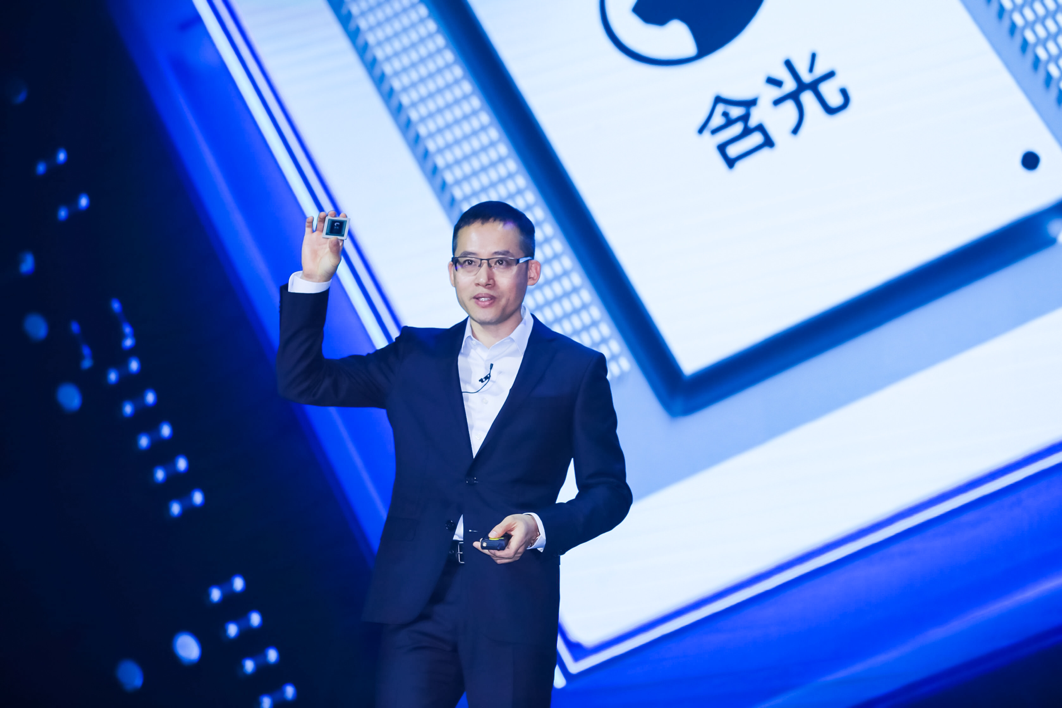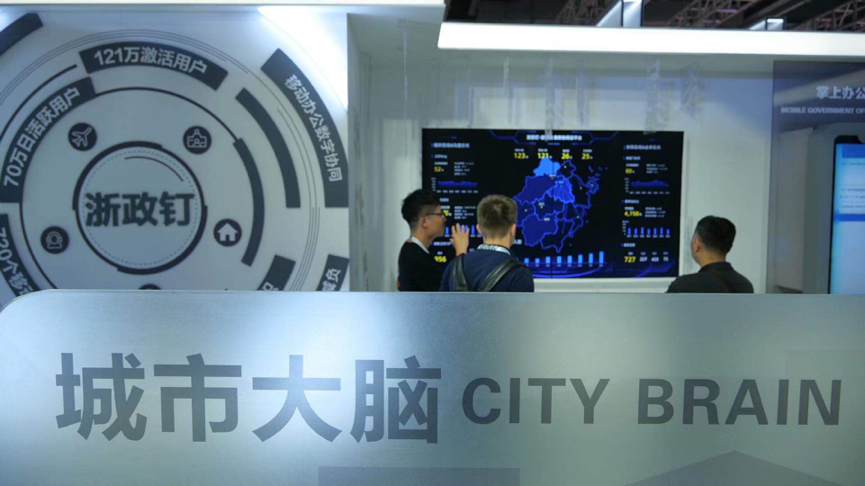The Apsara Conference in Hangzhou is one of the biggest annual gathering of developers and tech enthusiasts in China. There will be two plenary sessions and over 100 sub-forums over the course of two days. People can also walk around a 20,000 square meter exhibition area, where international companies, like Intel, and Chinese firms, like sportswear maker Lining and home appliance maker Midea, show off their latest innovations in utilizing big data and cloud technologies.

Lining exhibits cloud connected digital price tags which can show different prices to each registered customer. /CGTN Photo
Lining exhibits cloud connected digital price tags which can show different prices to each registered customer. /CGTN Photo
This year's big event — the release of the Hanguang 800, which claims to be the fastest AI inference chip on the market. The chip is developed by Alibaba's semiconductor branch T-HEAD, which was established just last year.

Alibaba's CTO Zhang Jianfeng announcing the Hanguang 800 AI chip. /Photo via Alibaba
Alibaba's CTO Zhang Jianfeng announcing the Hanguang 800 AI chip. /Photo via Alibaba
Cloud computing power has many potential applications. Sports retailers can build massive client databases, and cloud connected price tags can show tailored offers according to who sees them. Meanwhile, government agencies can share citizen profiles on a centralized system to create a one-stop shop for public services.

Improvements of Hangzhou's City Brain system are shown. /CGTN Photo
Improvements of Hangzhou's City Brain system are shown. /CGTN Photo
There's no better place to investigate how data intelligence works than in Hangzhou. Case in point: The City Brain system. It has made some new improvements at the Hangzhou International airport since it was last covered.
A lot of things go into making it run smoothly: One department is in charge of giving permission for landings and take-offs. Another takes charge of allocating jet bridges. The airline decides when to open and close the aircraft doors, and the airport's service team takes care of the refueling, maintenance, and other needs.
These groups are coordinated by people who are watching surveillance feeds in the control tower. For a long time, this was done manually through radios. The City Brain system helps by collecting relevant videos and flight plan data, and using them to calculate and provide the best real time solutions. This way, airplane take-off times can be determined much less arbitrarily and that means fewer delays.
This system has worked. For example, during this year's biggest typhoon, Lekima, the system helped calculate new flight schedules for 200 delayed planes for Xiamen airlines, in just 15 minutes. If it were done by humans like in the past, it would have taken at least five hours.
Journalists have been talking about the city brain system for a long time, and they always use traffic lights as the prime example. The system at traffic police headquarters uses big data to adjust traffic lights at rush hour. But this year, it has improved further.
The traffic lights along downtown Jiangnan road are supposed to turn green when an ambulance or firetruck on duty rushes through. This mechanism was put in place in April 10, 2019. Two days later, a patient with brain hemorrhage was taken to the district hospital in 25 minutes, on a route that would usually take 45 minutes.
Alibaba CTO Zhang Jianfeng said the new Hanguang 800 chip can process traffic data in downtown Hangzhou with lower latency and with only a tenth of the number of chips currently employed, making the city smarter.